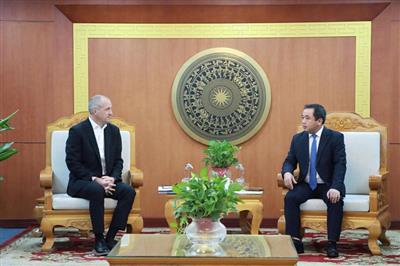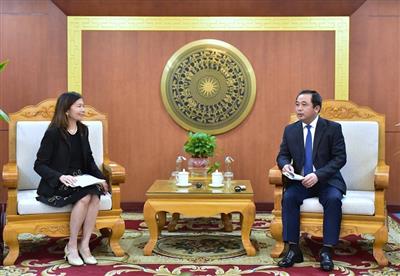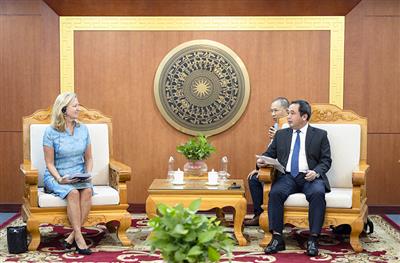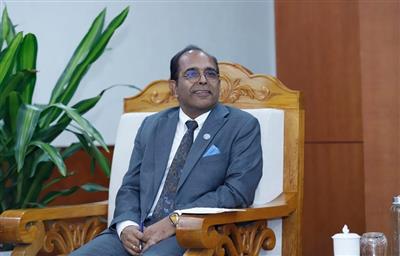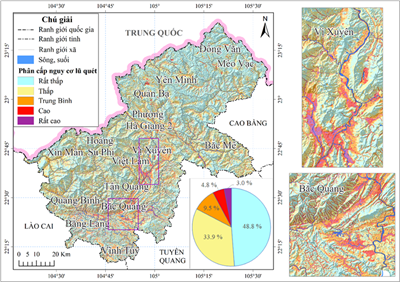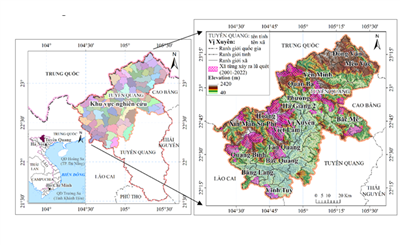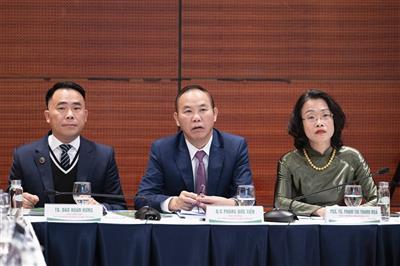
Science and technology: Driving Vietnam’s climate response in the new phase
24/09/2025TN&MTIn the context of climate change exerting increasingly profound impacts across all domains of global life, Vietnam is facing unprecedented challenges while also unlocking new development opportunities. The commitment to achieve net-zero emissions by 2050 is not only an international responsibility but also a driving force for the country to accelerate its development transformation, grounded in science, technology, innovation, and digitalization. In implementing Politburo Resolution No. 57-NQ/TW on breakthroughs in science, technology, innovation, and national digital transformation, the Department of Climate Change (Ministry of Agriculture & Environment) has set priority research orientations for the new phase, creating momentum for a green economy, a circular economy, and sustainable development.
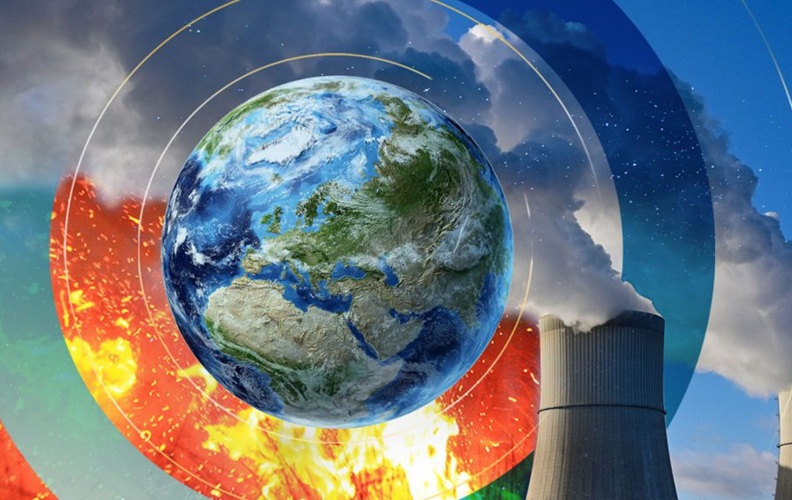
Climate change is intensifying globally, affecting economies, politics, diplomacy, and security. Since 2021, the Paris Agreement has entered a binding phase, requiring nations to adapt and reduce greenhouse gas emissions under their nationally determined contributions (NDCs) to limit global warming to 1.5°C. Achieving net-zero emissions by 2050 is both a global imperative and an opportunity for Vietnam to restructure its economy sustainably, leveraging science, technology, innovation, and digital transformation
Global challenges and Vietnam’s commitments
Climate change is intensifying worldwide, already affecting economic, political, diplomatic, and security dimensions at the global level. Since 2021, the Paris Agreement has entered its implementation phase, requiring each country to proactively adapt to minimize adverse climate impacts, while reducing greenhouse gas (GHG) emissions under their Nationally Determined Contributions (NDCs) to keep global temperature rise within 1.5°C by the end of this century. Climate response and support must be central to every nation’s development agenda, carried out transparently and subject to international monitoring and evaluation.
Achieving Net-Zero emissions by 2050 has become an inevitable global development target, pursued primarily through accelerated energy transitions and low-carbon development. This is also a new “rule of the game” for global trade and investment established since the 26th Conference of the Parties to the UNFCCC (COP26). At COP26, Vietnam committed to net-zero emissions by 2050 with domestic resources, complemented by international cooperation and support, thereby contributing to the collective global effort to address climate change.
Alongside challenges, this also presents opportunities for Vietnam to capture the momentum of global low-carbon development. Effective adaptation and GHG emission reduction, based on science, technology, innovation, and digital transformation, provide a foundation for restructuring the economy toward sustainability, enhancing competitiveness, expanding trade partnerships, and enabling the nation to thrive in the new era.
Initial progress and the role of science and technology
Vietnam’s climate response has achieved important initial results in recent years, with numerous policies, programs, and action plans enacted and implemented. Politburo Conclusion No. 81-KL/TW (June 4, 2024) on continued implementation of the 11th Party Central Committee’s Resolution on proactive climate change response, resource management, and environmental protection identified adaptation and Net-Zero targets as both a challenge and an opportunity for sustainable development. This direction aims to build an independent and self-reliant economy, while advancing substantive international integration.
The Law on Environmental Protection (2020) established a critical legal framework for shifting from a “brown” to a “green” development model, including provisions on climate adaptation, GHG mitigation, ozone layer protection, and the creation of a domestic carbon market as a key instrument for emission reductions. The Government, the Prime Minister, and line ministries have issued a series of legal documents, strategies, plans, and projects to strengthen climate action.
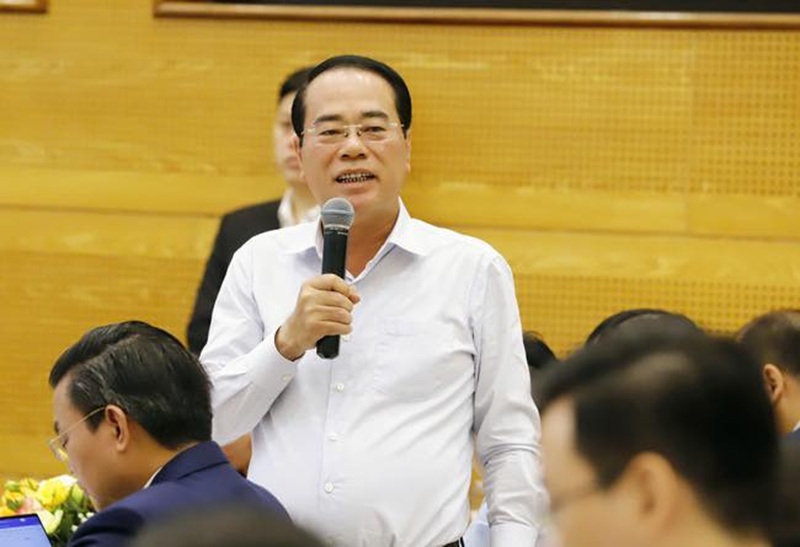
Dr. Tang The Cuong, Director General of the Department of Climate Change (Ministry of Agriculture & Envinroment)
In parallel, concrete measures have been implemented nationwide, such as upgrading forecasting and early warning systems, reinforcing coastal and river dikes, developing sectoral and local adaptation plans, advancing green and low-carbon economic models, promoting climate communication, and expanding international cooperation—solidifying Vietnam’s growing role in addressing global challenges.
In terms of science and technology, the Ministry of Agriculture and Environment (formerly the Ministry of Natural Resources and Environment) has coordinated with the Ministry of Science and Technology to implement two major programs: the Science and Technology Program in support of the National Target Program to Respond to Climate Change (2011–2015) and the Science and Technology Program on Climate Change, Resource Management, and Environmental Protection (2016–2020). These programs provided scientific foundations and advanced tools for climate action, informed policy and technology solutions, and supported Vietnam’s implementation of its NDC.
Nonetheless, challenges remain. Research outcomes with large-scale, practical applications are still limited; interdisciplinary coordination in climate research is fragmented; much of the work remains academic without strong application; infrastructure for science and technology is uneven; the pool of specialized experts is insufficient; and funding remains inadequate and dispersed.
Six priority research directions for the new phase
The Resolution No. 57-NQ/TW on breakthroughs in science, technology, innovation, and national digital transformation is a major driver for the country’s advancement in the new era.
To effectively implement Resolution No. 57-NQ/TW, beyond reviewing and refining mechanisms and policies to promote technology transfer and innovation for climate response, and developing and nurturing high-quality human resources, the Department of Climate Change proposes six priority research directions for the new phase:
First, science, technology, and innovation for emission transparency: Develop and transfer advanced tools and models for GHG emissions calculation, simulation, and forecasting; build emission databases, methodologies, and certification systems to ensure transparency and reliability of emission reduction activities.
Second, renewable and zero-emission energy research: Advance new renewable energy sources (offshore wind, tidal energy, biomass, etc.); research and apply green ammonia and green hydrogen; develop energy storage solutions and carbon capture, utilization, and storage (CCUS) technologies; promote energy-efficient cooling using natural refrigerants to replace ozone-depleting and high-GWP substances.
Third, carbon credit methodologies: Research and propose methods for generating carbon credits from sectoral mitigation measures to support Vietnam’s NDC implementation; develop indicators to assess carbon leakage risks in export-oriented industries, informing carbon pricing policies.
Fourth, integrated models for adaptation and risk reduction: Research, develop, and transfer advanced smart models and solutions to: (i) forecast and monitor climate change, human activity, and sea level rise impacts on subsidence, erosion, and salinity intrusion; (ii) forecast agricultural production, disease outbreaks, and environmental changes to reduce climate risks and enhance sustainability; (iii) support social welfare and a just transition adapted to regional ecological and social conditions.
Fifth, climate-resilient, low-carbon agriculture: Research and promote ecological, organic, circular, and low-carbon agriculture; develop crop and livestock breeds with high productivity, market adaptability, and climate resilience; apply management and technical measures to reduce methane and GHG emissions, including methane recovery in agriculture; enhance forest carbon quality and stock, and establish absorption and emission factors for plantation forest management.
Sixth, digital transformation for climate management: Advance big data and GIS systems for climate and disaster monitoring and early warning; apply artificial intelligence (AI) and the Internet of Things (IoT) in risk analysis, disaster management, and climate response.
As Vietnam strives to become a high-income developed country by 2045, advancing science, technology, innovation, and digital transformation for climate change response is both a necessity and a strategic choice. It is the key to driving a green and circular economy, strengthening resilience, and enabling the nation to rise in the global green and digital era.
Dr. Tang The Cuong
Director General, Department of Climate Change
Ministry of Agriculture & Envinroment
Source: The Conference on the Implementation Plan of Politburo Resolution No. 57-NQ/TW on breakthroughs in science, technology, innovation, and national digital transformation.


